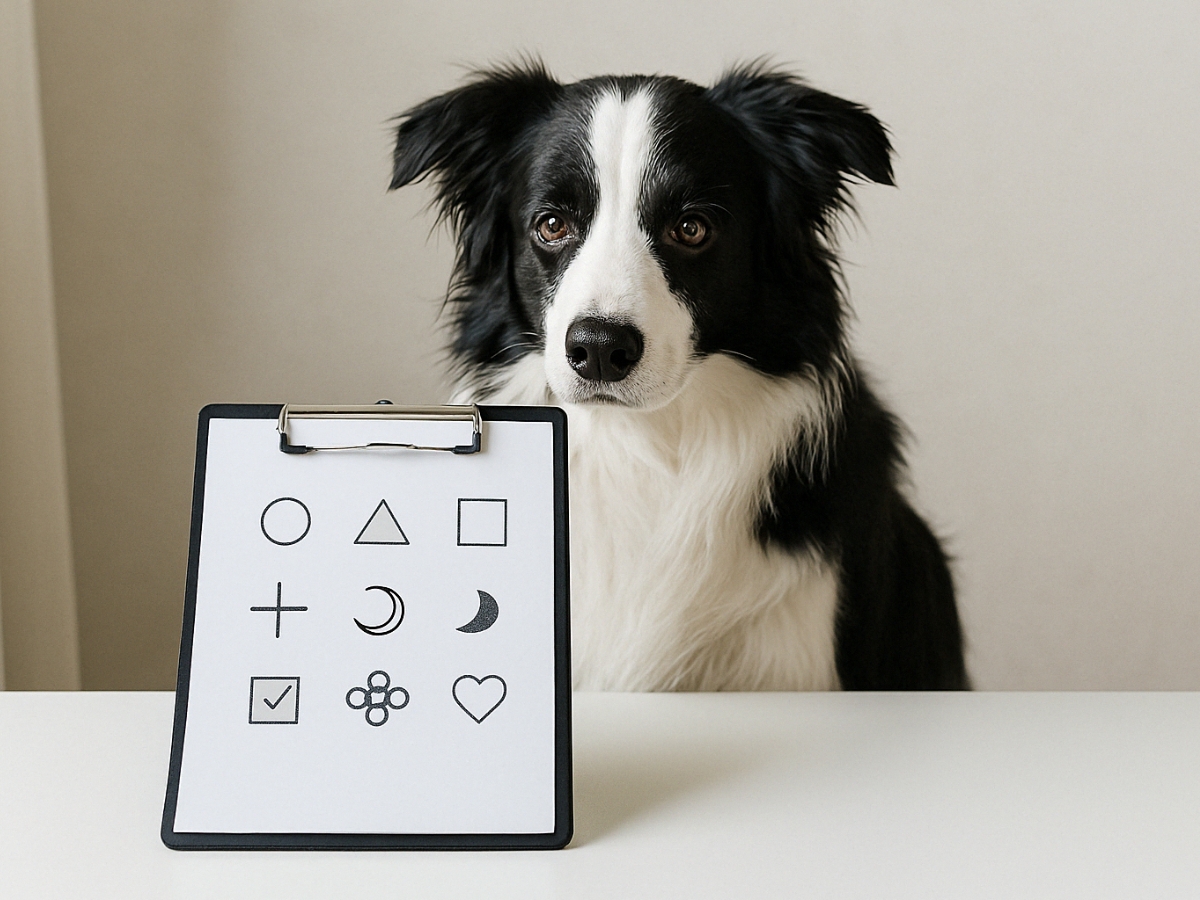Picture this: Your furry buddy is trying to communicate with you, eyes bright with understanding. But how much do they really get? Are they secretly genius masterminds or just lovable goofs? Let’s dig deep into the world of canine intelligence. You might be surprised by what’s behind those puppy eyes.
Ever wondered if your pooch is the Einstein of the dog park? Well, stick around to discover fascinating insights about dog smarts that you won’t want to miss! There’s more to your dog’s brain than fetch and belly rubs. Who knows—your pup might even surprise you (and themselves!)
Join me on a tail-wagging journey into what makes some dogs smarter than others, and why they act the way they do. It turns out, a dog’s IQ is just as intriguing as ours!
So, how does your favorite tail-wagger stack up on the smarts scale? Keep reading to find the surprising secrets behind the brilliance of your barking buddy!
Ready to unleash the hidden genius of your pet? Let’s jump in!
Understanding Canine Intelligence
Understanding canine intelligence begins with acknowledging how complex it truly is. It’s not just about following commands—though obedience is certainly a part of it. Canine IQ also includes their problem-solving skills, ability to understand human emotions, and even their social interactions with other dogs.
Researchers have identified key components of dog intelligence, often categorized into three types: instinctive, adaptive, and working intelligence. Instinctive intelligence varies according to breed-specific traits, like herding in sheepdogs or retrieving in retrievers.
Adaptive intelligence refers to a dog’s ability to learn from their environment and experiences. It’s the dog who can open a fridge door by mimicking their human or who makes a beeline for the treat cupboard whenever you say ‘snack’.
Finally, working intelligence deals with how well dogs learn from humans, including following commands. Breeds that excel in obedience trials often score high in this type of intelligence.
It’s fascinating to realize that just like us, dogs have different strengths and weaknesses. Some are book-smart, while others are street-smart. But here’s the kicker: even within breeds, individual dogs can have varying levels of intelligence.
Did you know that some studies suggest dogs can recognize and remember hundreds of words? That’s like learning a new language for us humans!
Moreover, dogs are incredibly intuitive when it comes to reading human emotions. Their keen sense of empathy is a form of intelligence that helps them connect deeply with their owners.
What’s truly mind-boggling is how all these elements combine to make each dog unique in their intelligence. Just like humans, they have their own quirks and charms.
Curious about where your dog fits into these categories? Keep going—we’re just getting started on this enlightening exploration!
The Smartest Dog Breeds
Let’s talk about the smarty-pants of the dog world. Certain breeds have repeatedly topped the charts in intelligence due to their ability to learn commands quickly and retain them. These breeds often feature prominently in competitive obedience and agility sports.
At the forefront is the Border Collie, famous for their extraordinary problem-solving skills and work ethic. Ever seen a Border Collie in action? It’s like watching a furry mathlete perform their best tricks!
Poodles, known for their elegance, also rank high in the smarts department. Don’t let their fluffy appearance fool you; they are incredibly adept at learning commands and performing complex tasks.
German Shepherds, often seen in police and military roles, are not far behind. Their intelligence, paired with their loyalty and courage, makes them not only great working dogs but also excellent family pets.
Golden Retrievers are known for their friendly demeanor, but did you know they are also quick learners? It’s no wonder they excel in therapy work—they seem to understand what people need.
Don’t forget about the adorable Shetland Sheepdog. These fluffballs are not just eye candy; they’re quick to pick up tricks and love to show off their prowess on the agility course!
But intelligence isn’t exclusive to the big breeds. Tiny toy pooches like Papillons have also earned their spot for being both clever and attentive companions.
Of course, this is not an exhaustive list, and many dogs, regardless of breed, can surprise you with their cleverness. Sometimes the least expected breeds excel in problem-solving or emotional intelligence.
Your dog might not belong to one of these breeds, but they can still be a wonder! It’s time to dig more into what constitutes smart and how you can bring out the best in your canine genius.
Testing Your Dog’s IQ at Home
Curious to test your pooch’s intelligence yourself? You can try a few fun activities at home! These simple tests are as enjoyable for you as they are stimulating for your furry friend.
Start by observing your dog’s problem-solving skills. Hide a treat under a cup and watch them figure it out. The faster they get to the treat, the better their problem-solving prowess.
Memory games are another great way to assess their smarts. Teach your dog a new trick and see how many times it takes them to master it. Remember, it’s not just about speed but their ability to retain and perform the trick later.
Another interesting test is the towel test. Gently drape a towel over your dog’s head and see how long it takes for them to shake it off. Dogs with high adaptive intelligence shake it off quickly!
Does your dog understand your emotions? Test their responsiveness to your moods. Pretend to cry and watch if your dog tries to comfort you. This emotional intelligence is a telling sign of their sensitivity to human feelings.
Timing these activities can add a sense of challenge. Create a chart to track their progress over time. You’ll start noticing patterns in their learning behavior.
But remember, these tests are all in good fun. Every dog has unique skills. Some dogs excel in problem-solving, while others shine in social settings.
Encourage them with treats and praise, ensuring their IQ journey is a rewarding one. It’s all about strengthening that bond between you and your clever pup!
Next, we’ll explore how you can nurture their intelligence, so they can reach their full potential as the brilliant creatures they are.
Nurturing Your Dog’s Intelligence
So, your dog’s got brains—what now? Just like with human kids, nurturing canine intelligence requires engaging them in stimulating activities and providing a supportive environment.
Keep their minds sharp with regular training sessions. Not only does this build intelligence, but it also strengthens your bond. Incorporate a variety of commands and tricks to keep them entertained!
Interactive toys are a fabulous way to stimulate their cognitive skills. Puzzle feeders are particularly useful, turning meal time into a mental exercise and teaching them problem-solving strategies.
Socialization is another critical aspect. Meeting other dogs and people can enhance their social intelligence, helping them learn how to respond in different scenarios.
Frequent playtime is important as well. Games like hide-and-seek or fetch can be adjusted to challenge their minds, like finding hidden toys or taking new routes.
If you notice your dog excels in a particular area, like agility or scent work, consider specialized training in those areas. Many dogs thrive when they have a ‘job’ or purpose to focus on.
Consistency is key. Regular practice consolidates learning and helps your pup remember commands better. Variety, however, is equally important. Keep their skills sharp by introducing new challenges.
Always reward their efforts. Positive reinforcement helps reinforce learning and encourages them to try harder.
The journey of nurturing a dog’s intelligence is as rewarding for you as it is for them. It’s not just about having the smartest dog on the block, but about creating a fulfilling, enriched life full of mutual understanding and joy.
Understanding Limitations and Celebrating Uniqueness
While it’s fun to measure your dog’s intelligence, it’s essential to understand that each dog is unique in their capabilities. Just as humans have different strengths, dogs too have varying capacities and talents.
Some dogs may struggle with specific tasks but excel in others. This doesn’t make them any less smart—it just means their intellectual strengths lie in areas that might not be immediately obvious.
For instance, an emotional support dog excels in understanding human emotions and providing comfort, showcasing a deep sense of emotional intelligence.
It’s crucial to celebrate each dog’s uniqueness. Whether they’re trick masters or champions of empathy, every dog brings something special to the table.
And remember, intelligence doesn’t equate to happiness. A happy, fulfilled dog is one who is loved, well-cared for, and enriched mentally and physically.
Comparing dogs can sometimes overlook the individual bond and relationship you have with your pet. It’s the shared experiences and mutual understanding that create truly lovable, smart creatures.
Appreciate the quirks, the mischief, and the love your dog offers. After all, being a dog parent is about the journey together, growing and learning from one another.
Enjoy the process, cherish every moment, and continue building a life enriched with understanding and unconditional love with your furry genius.
And now, as you look at your dog, you might just see them in a new light—a brilliant companion who perhaps knows you better than you think.

